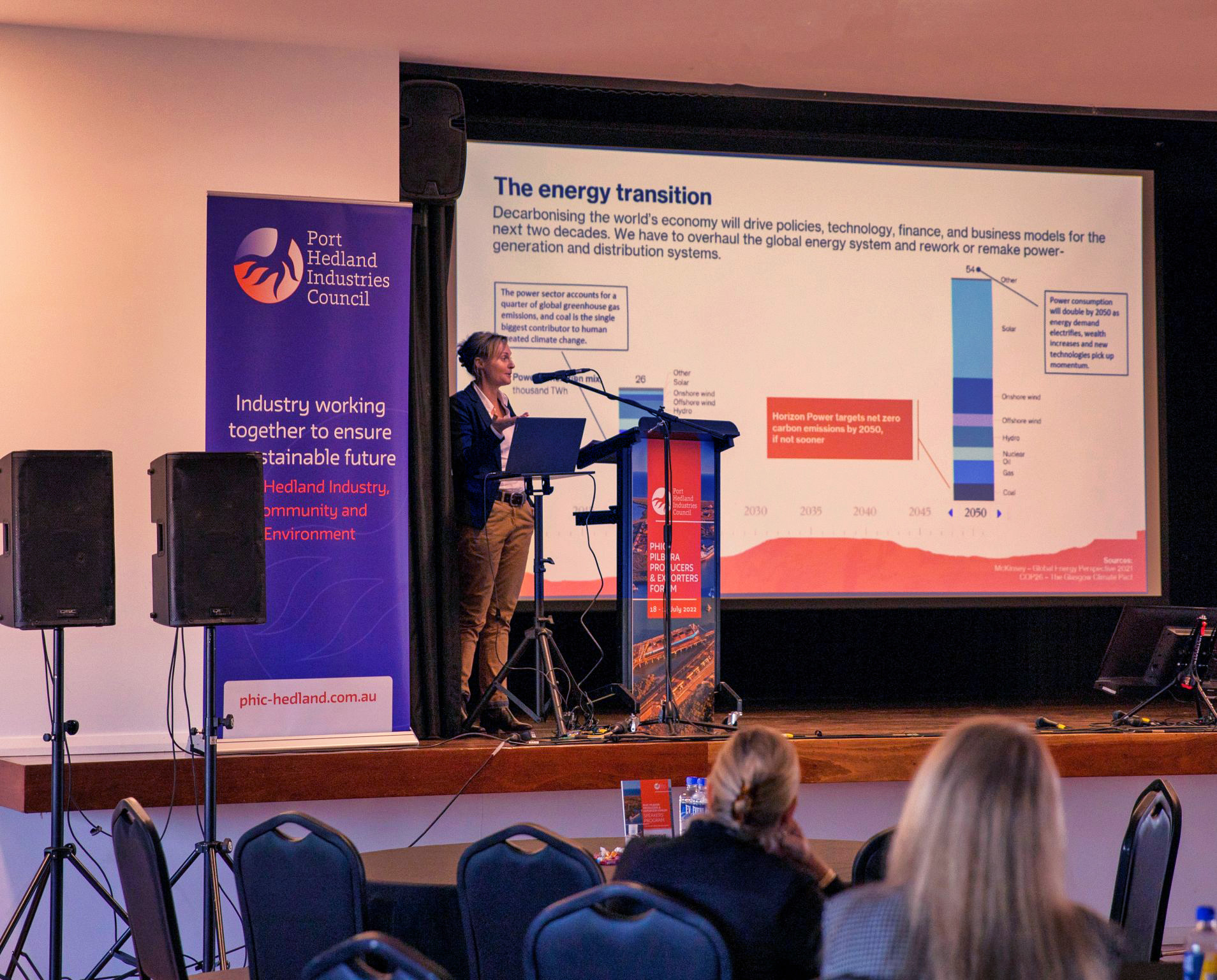A range of external experts joined PHIC members last month for a two-day conference which examined the opportunities and challenges on Environmental, Social, and Governance issues as they relate to Port Hedland and the Pilbara.
The closed Pilbara Producers and Exporters Forum allowed PHIC members to openly share some of their innovative approaches and projects they are working on to tackle issues including water use, decarbonisation, the role of technology and mitigating dust emissions.
Experts from private enterprise and Government agencies provided insights into the latest research and to discuss emerging opportunities for continuous improvement.
External guests included:
- Stephanie Unwin, CEO Horizon Power, discussing decarbonisation in the regions
- Meg McDonald, Board member, NSW Net Zero Emissions and Clean Economy Board, & Environment Commissioner, Greater Cities Commission – on opportunities in the energy transition across industry, infrastructure and planning
- WA Marine Science Institute CEO Luke Twomey – on the value of shared data to improve environmental outcomes
- Hydrobiology Director Phil Whittle on marine environmental monitoring of iron ore export ports
- CSIRO Hydrogen expert Dr Nikolai Kinaev – on how the organisation is working with industry on the challenges of hydrogen development
- DWER Director General Michelle Andrews, on regulating dust in Port Hedland
- And Millennium Kids youth board member Amelia Turk on the need for change for a better environment and future
Through sharing information, the goal was for everyone to strive for international best practice.
From our PHIC members:
- BHP discussed decarbonisation, water use and improving air quality
- Roy Hill explained their shift to battery powered electric locomotives
- Pilbara Ports Authority discussed the new port modelling underpinning the move to increase exports
- Mineral Resources talked about mine closure and rehabilitation
PHIC Chief Executive Officer Kirsty Danby said the key theme across the two days was collaboration and sharing information.
“It was an opportunity for everyone in the room to learn more about their areas of interest and consider how they can apply the latest thinking tackle problems within the region.” Kirsty said.


